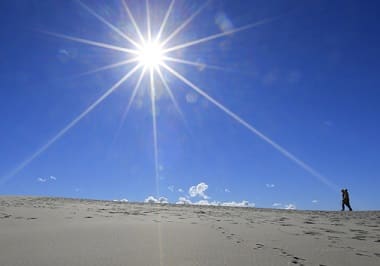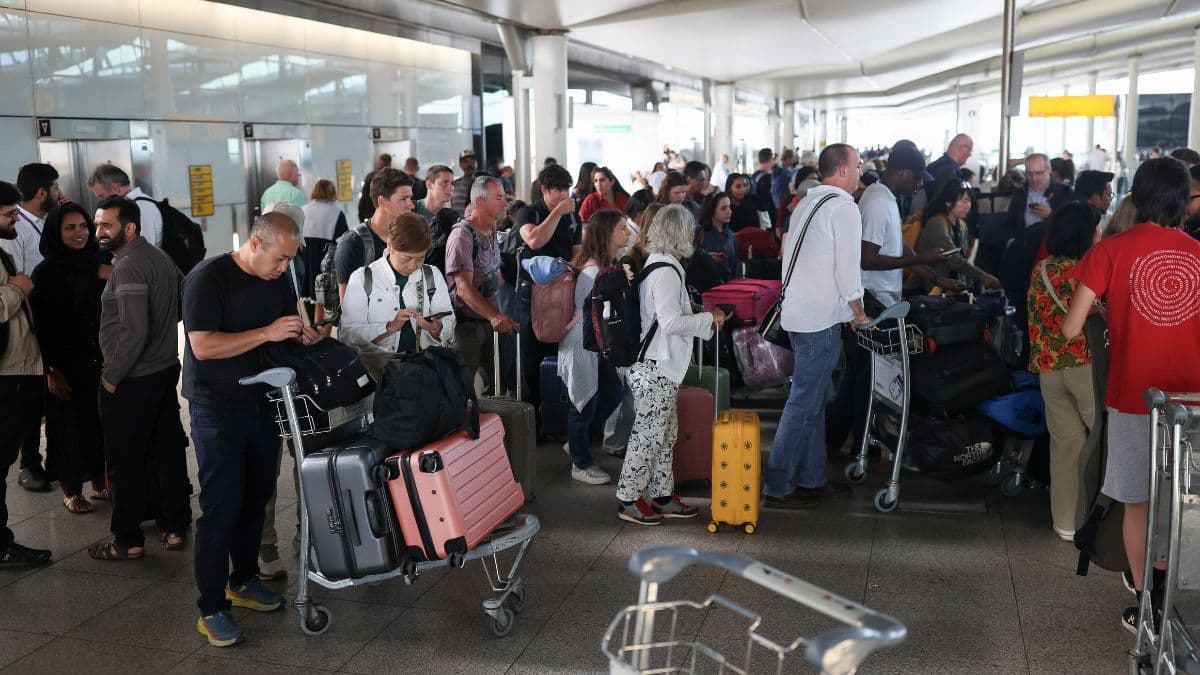Global warming could create peaks of humid heat in the Persian Gulf beyond human tolerance by century’s end, according to a study published Monday in the journal Nature Climate Change.
If greenhouse gas emissions continue unabated, heatwaves occurring on average once every 10 or 20 years would, by 2100, exceed the capacity of a young, healthy person to maintain a normal body temperature, the study found.
“The human body regulates its core temperature to around 37 degrees Celsius (98.6 degrees Fahrenheit), and its skin to a cooler 35 degrees Celsius (95 degrees Fahrenheit),” Jeremy Pal, a professor at Loyola Marymount University in Los Angeles, who authored the study along with Elfatih AB Eltahir of the Massachusetts Institute of Technology told AFP.
That difference allows us to shed excess heat, especially when the air is muggy.
But if a double whammy of high heat and humidity reaches a certain level, “the body is no longer able to cool itself and begins to overheat,” Pal told journalists in a phone conference.
That threshold — measured with an index scientists call “wet-bulb” temperature — would be crossed, for example, if a humidity level of 50 percent were combined with a temperature of 46 degrees Celsius (115 degrees Fahrenheit). A slightly higher temperature with a lower humidity level, or vice versa, would have the same effect.
Without air conditioning, humans could last about six hours under such conditions before their bodies began to shut down, the authors said.
One of the reasons the study is significant is because it can negatively impact the Hajj pilgrimage. If the Hajj pilgrimage happens during the summer months, it can turn into a life-threatening trip for lakhs of pilgrims.
Impact Shorts
More ShortsThe New York Times quotes Eltahir as saying that wet-bulb readings are not the same as the heat-index readings; in fact if a wet-bulb measure reads 95 degrees Fahrenheit (35 degrees Celsius), a heat-index reading will be around 165 degrees Fahrenheit. In terms of Celsius, that would mean a temperature of 73.8 degrees.
As CNN explains, in the present day, the wet-bulb temperature is a bit more than 31 degrees Celsius only on extremely hot days of summer. It never reaches 35 degrees Celsius (95 degrees Fahrenheit), which is fatal for humans. However, if countries continue to produce carbon emissions at the current rate then by the end of the 21st century, Dubai and other similar regions along the Persian Gulf will see wet-bulb temperatures exceed 35 degrees Celsius.
To date, no place on Earth has crossed the red line of a deadly “wet-bulb temperature”.
But on 31 July this year, Bandar Mahshahr in Iran came very close, according to Christoph Schar, a scientist at the Institute for Atmospheric and Climate Science at ETH Zurich.
“The consequences of major heat waves for human health has become apparent from the death toll of recent events such as those in Chicago in 1995, Europe in 2003 and Russia in 2010,” he wrote in a commentary, also in Nature Climate Change.
In France alone, there were some 15,000 excess deaths in the summer of 2003, according to government figures.
The researchers found that regions in the Gulf will be among the first to see such high temperatures that make the region unlivable because they have the conditions most conducive for the scenario: clear blue skies, the absorption of the Sun’s radiation by the shallow waters of the Red Sea, and a concentration of water vapour hanging close to the Earth’s surface.
With inputs from AFP


)

)
)
)
)
)
)
)
)



